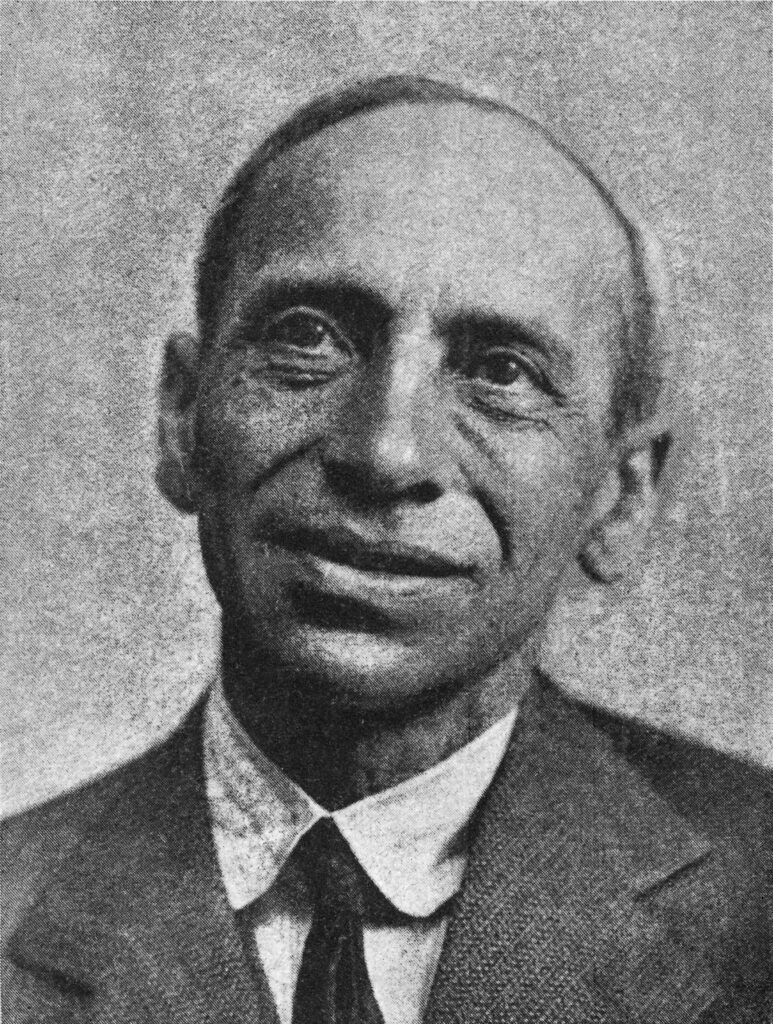Miryem (Miriam) Ulinover
When the day is hot
thirst becomes oppressive
I’ve been sent out for drinks
or to the local bar
The Song Remains

דאָס ליד איז געבליבן
Welcome to our collection of Yiddish poems with English translations from Nazi German occupied Poland. We’ll be publishing one new poem per week into 2027, so be sure to subscribe to get free weekly updates.
Shloyme (Shlomo) Burshteyn (1920-1943) was born in Białystok, and began writing poetry at age 17. He was confined in the Białystok ghetto, where he was active in the underground. He later spent a short time in the Łódź Ghetto before being deported to the Bliżyn concentration camp where he was murdered in 1943.
(more…)“Never ever take this off
not in joy or sadness
unless you are washing
to eat a piece of bread.”
Farewell, my Kraków!
farewell my dear
The wagon waits before my house
and mad enemies are here drive me out
like you would cruelly chase a dog
From my hair rain is running
my cheeks are wet
I come to muddy thresholds as a guest
am silent, about where and to whom
Hinde Grin-Nayman (1916-1944) was born in Łódź and spent her youth there. After studying literature and chemistry at Warsaw University, she started publishing poetry in Yiddish and Polish in 1934. She wrote a novel about Jewish student life that was never published. She and her husband Yerakhimiel Grin were imprisoned in the Janów concentration camp, and was murdered in 1944. Her song, Mir zitsn bam zamdbreg tsufusns un trinken lekhayim mitn toyt (We’re sitting by the edge of the sand and drinking “to life” with the dead) was popular in many death camps.
(more…)One Two Three Four
unemployed are we
haven’t heard month’s long
the factory’s hammering sound
tools lay cold forgotten
rust has made them rotten
and we walk around the streets
like the wealthy here and there
like the wealthy here and there

Mordkhe (Mordechai) Gebirtig (1877-1942) was born Markus Bertig in Kraków, and is one of the best known Yiddish poets. He trained as a carpenter, but his true passion was the theater. He published his first book of poetry in 1920, and made many of his poems into songs.
(more…)Los Angeles, California and Wellington, New Zealand
10 May 2024
The Song Remains, an online anthology of over 160 Yiddish poems by 36 authors with English translations, will be launched on 20 May at 12 noon PDT / 21 May 7am NZST in an online event.
You can register to attend the free online event at https://thesongremains.org/register
The poems were written in Nazi-occupied Poland during the Second World War, compiled by Binem Heller, and published in Warsaw in 1951. The collection holds the treasure of creative poetry written by people who were imprisoned, starved, and ultimately murdered. The poems cover a wide range of themes, from the light-hearted love of nature, to the trials of coming of age in the Ghetto, and ultimately trying to come to terms with hatred, destruction, and death. The English translations are by Dr Sarah Traister Moskovitz, a 96 year old native Yiddish speaker and professor emerita from California State University, Northridge.
The site will publish one poem per week in both English and Yiddish over the next three years. Visitors can subscribe to receive these poems for free by email at thesongremains.org.
(more…)